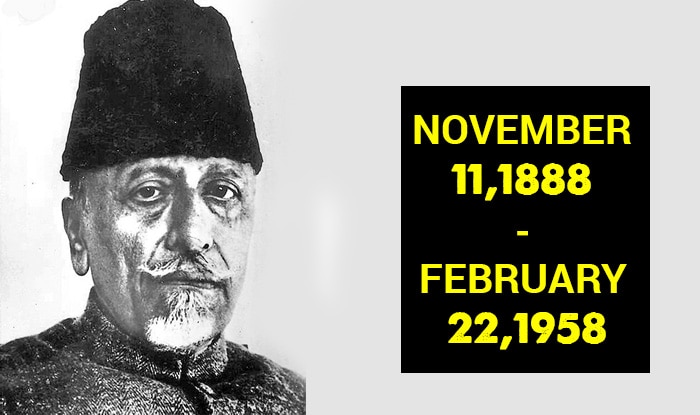Here's Why Maulana Abul Kalam Azad's Birthday Is Celebrated As National Education Day

National Education Day is celebrated in India on November 11 commemorating the birth anniversary of Maulana Abul Kalam Azad. The Indian scholar served as the first education minister of independent India from 1947 to 1958. Every year various competitions, workshops, and events are held in educational institutions highlighting the day’s importance. On September 11, 2008, The Ministry of Human Resource Development had announced the day will be celebrated as National Education Day. Their statement read, “The Ministry has decided to commemorate the birthday of this great son of India by recalling his contribution to the cause of education in India. November 11 every year, from 2008 onwards, will be celebrated as the National Education Day, without declaring it a holiday.”
National Education Day is observed to raise the quality of education given to students in the country. The day also remembers the contributions of Azad in laying the foundations of the education system in an independent India.
Maulana Azad’s belief in education
Azad was advised to be a Muslim clergyman but went on to become a fighter and builder of modern India. He always talked about the importance of quality education as students would decide tomorrow’s future. He was also a strong advocate of universal primary education, girls’ education, free and compulsory education for all children up to the age of 14, vocational training and technical education.
His contributions and accolades
While his real name was Abul Kalam Ghulam Muhiyuddin, he later adopted Azad (free) as his pen name. In 1912, he started a weekly journal in 1912 in Urdu called Al-Hilal to increase the revolutionary recruit. In 1922, he was awarded India’s highest civilian honor, the Bharat Ratna. Azad established some of the prominent educational and cultural institutions today including the Sangeet Natak Academy, Lalit Kala Academy, Sahitya Academy and the Indian Council for Cultural Relations. Also, the first IIT, IISc, School of Planning and Architecture and the University Grants Commission were established under his tenure.






 →
→












0 comments:
Post a Comment